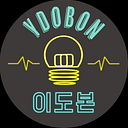Is Finance an Art or a Science? The short answer to this question is both. Finance, as a field of study and an area of business, definitely has strong roots in related-scientific areas, such as statistics and mathematics. Furthermore, many modern financial theories resemble scientific or mathematical formulas. However, there is no denying the fact that the financial industry also includes non-scientific elements that liken it to an art.
I usually tell my students that I can help you understand the finance world, but I cannot guarantee you to succeed in that world. With these words in mind, let me introduce the topics we will discuss for Introduction to QRM (QRM1001), Fall semester, 2020.
The topics to be covered are
- Python programming language
- Machine learning with TensorFlow 2
- Kaggle competition
- A little taste of financial engineering (if time permits)
For Python, we will use datacamp.com. This website is one of the paid learning resources, but they offer free academic pricing which is essentially the same as their paid account. It just lasts for 6 months, after that you need to pay for the courses. During these free periods, everything on their website is free.
We will cover Introduction to Python and Intermediate Python during the first 3 weeks.
In week 4, we will explore some freely available web resources for Python. It includes Colab based Python notebooks and Kaggle notebook.
In weeks 5 and 6, these are all holidays. So instead of having interactive zoom meetings, I will provide two series of animation videos: one for linear algebra, and one for calculus. During the holidays you may enjoy the videos and learn a lot.
From week 7 and on, we start to talk about machine learning. Machine learning is a broad area, we will cover the most fundamental concepts and Python-based machine learning library, TensorFlow 2.
Some point around week 10 or so, I will announce your final project. My current guess is to use the Kaggle competition, which is an online community of data scientists and machine learning practitioners. It allows users to find and publish data sets, explore and build models in a web-based data-science environment, work with other data scientists and machine learning engineers, and enter competitions to solve data science challenges.
